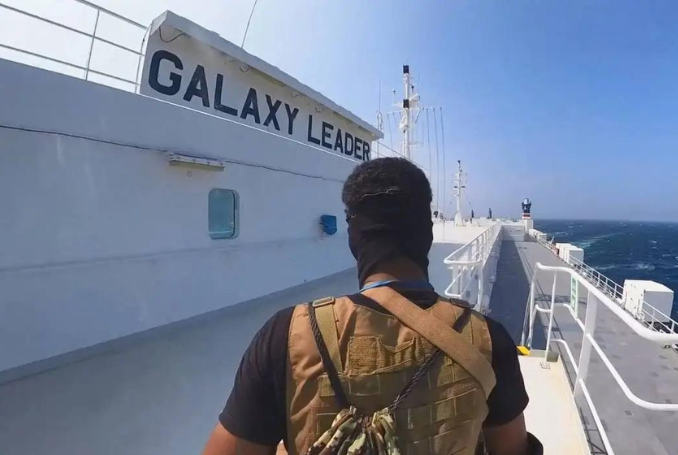
The Ansarallah movement has vowed to continue until Israel ceases its attacks on Gaza and allows much-needed humanitarian aid into the besieged enclave.
The volume of mercantile traffic passing through the Red Sea has decreased by 42 percent in the last two months, according to the United Nations Conference on Trade and Development (UNCTAD), raising concerns for global trade.
“We are very concerned that the attacks on Red Sea shipping are adding tensions and costs to global trade, exacerbating trade disruption due to geopolitics and climate change,” Jan Hoffmann, chief of UNCTAD Trade Facilitation Section, said in a media briefing on Thursday.
Since November, Yemen’s Ansarallah movement has targeted ships bound for Israeli ports, as a way of putting pressure on Israel to end its attacks on the Gaza Strip, which have resulted in the deaths of more than 26,000 Palestinians.
As a result, leading shipping companies have suspended their vessels’ transit through the Red Sea, and opted to sail around South Africa’s Cape of Good Hope.
Ansarallah spokesman @M_N_Albukhaiti tells me his movement's blockade of Israeli and US shipping to stop the Gaza genocide has prompted unprecedented political unity in civil war-torn Yemen
Ansarallah's Islahi rivals have issued support for the Red Sea naval blockade pic.twitter.com/K4ZvtTXcXv
— Max Blumenthal (@MaxBlumenthal) January 25, 2024
Hoffmann explained that “The Red Sea route and the Suez Canal is critical for global trade flows.”
The Suez Canal handled approximately 12 to 15 percent of global trade, he said. “For container shipping, it’s even more important: 20 percent of the world’s container trade goes through the Suez Canal.”
Hoffmann stressed, “The impact of the Red Sea crisis on shipping costs and rates now has been dramatic. The surge in the average container spot rate from Shanghai went up by plus USD 500. And that was the highest-ever weekly increase.”
Lifeline of Global Trade
Hoffman explained that more than 80 percent of the volume of trade in goods is carried by sea.
“So, it’s maritime transport is really the lifeline of global trade,” he said.
The longer trade distances and higher freight rates could have cascading effects on food prices.UNCTAD estimates that about half of the increase in food prices observed in 2022 was due to higher transport costs.
Ansarallah’s action in the Red Sea has led to the US and Britain launching airstrikes inside Yemen, killing at least five people.
Watch today's speech by Ansarallah ('Houthi') leader Seyyed Abdul-Malik Al-Houthi
(thanks @revolutionaryem for subtitles)
"There must be huge demonstrations, a loud voice of the people to demand to stop the aggression against Gaza and to end the crimes against the Palestinian… pic.twitter.com/wOggFfTBap
— COMBATE |?? (@upholdreality) January 26, 2024
The strikes were ordered were deemed as “illegal” by Progressive Democrats in Congress, who argued that Biden violated Article 1 of the Constitution — which requires Congress to first authorize military action — by side-stepping Congressional approval. Biden informed Congress of the move but did not request approval.
The Ansarallah movement has vowed to continue until Israel ceases its attacks on Gaza and allows much-needed humanitarian aid into the besieged enclave.
According to Gaza’s Ministry of Health, 26,083 Palestinians have been killed, and 64,487 wounded in Israel’s ongoing genocide in Gaza starting on October 7.
Palestinian and international estimates say that the majority of those killed and wounded are women and children.
(The Palestine Chronicle)









The Houthis wouldn’t need to repel Israeli ships if Israel would just stop murdering children. they can’t.
now read into, ” blood libel ”
America caused literally ALL of this. they could have stopped it at any point over the past decade, 2 decades, 3 decades, 4 decades……..etc.